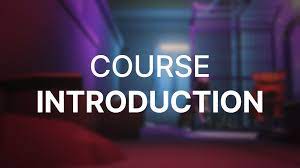S1 M1 Genetics, Communication
Topic outline
-

The communication course for master 1 genetics students is designed to enhance your ability to convey scientific concepts with clarity and precision. You will learn effective communication strategies, presentation skills, and techniques… in both oral, and written formats, to make scientific knowledge into accessible language, clear and precise. This course equips you with the essential skills to communicate your works, research findings and the scientific knowledge, innovations and discoveries in the field of biology and genetics.
-

Faculty: Sciences of Nature, Life and Earth
Department: Biology
Master 1 st Level, Genetics
Coefficient: 02
Credits: 02
Evaluation: Control + Exam
-
it provides students with a collaborative space to share ideas, thoughts, and insights related to the course. It serves as an interactive learning where students can engage in discussions, exchange information, and deepen their understanding.
-
- Explore genetic modification in plants for various purposes.
- Discuss the latest developments in genetically modified crops and their impact.
-
- Subforums for major crops (e.g., corn, wheat, rice) to discuss genetic improvement strategies.
- Share information on crop breeding, genetic modification, and crop disease resistance.
-
each student is going to add to this glossary, each time that he learns a new word, you can work together to make definitions and examples.
-
-

This course is designed for biology students of master 1st level Genetics, where they learn techniques of effective communication, clear presentation, and scientific argumentation including:
1. **Developing Clear Communication Skills**: Help students develop clear and concise communication skills to convey complex biological concepts and information effectively.
2. **Mastering Presentation Software**: Teach students how to use presentation software like PowerPoint, word processing tools like Word, and data analysis tools like Excel to create visually engaging and informative presentations.
3. **Organizing Ideas**: Train students to organize their ideas logically, ensuring a structured and coherent flow in their presentations and written reports.
4. **Scientific Argumentation**: Teach students the principles of scientific argumentation, including the formulation of hypotheses, gathering and analyzing data, and drawing valid conclusions based on evidence.
5. **Audience Engagement**: Equip students with techniques to engage their audience, such as storytelling, visuals, and interactive elements to maintain interest and attention.
6. **Effective Visual Design**: Teach students principles of visual design, including the use of charts, graphs, images, and text formatting to enhance the clarity and impact of their presentations.
7. **Practice Public Speaking**: Provide opportunities for students to practice public speaking, including techniques for clear articulation, voice modulation, and body language.
8. **Peer Collaboration**: Encourage collaboration among students, allowing them to work in groups to refine their communication skills through peer feedback and group presentations.
9. **Critical Thinking**: Foster critical thinking skills by teaching students to evaluate and critique scientific arguments and presentations, both their own and those of their peers.
10. **Ethical Communication**: Emphasize the importance of ethical communication, including proper citation of sources and avoiding plagiarism in scientific communication.
11. **Feedback and Revision**: Encourage a culture of feedback and revision, where students learn to accept constructive criticism and continuously improve their communication skills
-
Potential prerequisites may include a foundational understanding of basic genetics concepts and a familiarity with scientific terminology. Additionally, a basic proficiency in English, as the course emphasizes both oral and written communication, would be advantageous.
-
-

Effective communication is an essential skill for students pursuing a master's degree, enabling them to prepare for a successful career. This course, is designed to provide students with a comprehensive understanding of communication at the university level, highlighting its various purposes and the importance of mastering this skill for future success.
-
the first purpose of the lesson, and all our lessons, is that the students communicate and exchange their ideas, feedback, and experiences, using the language as a tool to express their opinions.
-

Mastering academic writing equips students with the ability to conduct in-depth research, cite reliable sources, and construct well-structured arguments, which are essential skills for success in higher education and beyond.
-
-
-
Plagiarism is considered a serious ethical violation in academic and professional settings, as it undermines the principles of intellectual honesty, originality, and integrity. Common forms of plagiarism include copying and pasting from sources without citation, paraphrasing without proper attribution, and submitting someone else's work as one's own.
-
-
Paraphrasing serves as a crucial linguistic tool, allowing students to rearticulate information in their own words while preserving the original meaning. Paraphrasing is necessary for presenting information with clarity, originality, and precision.
-
-
conferences and presentations play a crucial role in fostering collaboration, sharing knowledge, and advancing academic and professional development within various fields. They serve as dynamic platforms for students, academicians and experts to engage with the latest developments, connect with peers, and contribute to the collective growth of their respective communities.
-
-
-
Summarization serves to provide readers with a quick and efficient understanding of the main ideas, arguments, and findings without the need to delve into the entire document. By condensing complex information into a more digestible form, summaries facilitate easier comprehension, enable quicker review, and help in effective communication by highlighting the crucial elements and reducing the volume of information, making it a valuable tool in academic contexts.
-
-
developing presentation skills is essential for professional success. It not only allows you to effectively convey information but also contributes to your overall competence, confidence, and ability to make a positive impact on your lecturers, your friends, on colleagues... and on your future.
-
-
-
The purpose of discussing and arguing is to explore ideas, share perspectives, and reach a deeper understanding of a topic. Discussions encourage the exchange of diverse viewpoints, fostering critical thinking and the discovery of common ground. Arguments, when conducted constructively, aim to persuade others of a particular viewpoint. Both processes are essential for intellectual growth.
-
-
-
We will explore the role of logical connectors in effective communication. From enhancing coherence and clarity to shaping persuasive arguments, we will see the various types of connectors, providing a comprehensive table for quick reference.
-
-
This lesson explores the aim of analytical skills, fostering independent thought, and equipping learners with the ability to assess information critically. Uncover the importance of questioning assumptions, evaluating evidence, and making informed decisions.

